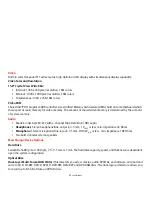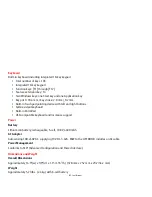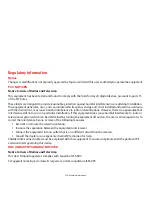
108
-
Network key
Data that is used for encrypting data in data communication. The personal computer uses the same network key both
for data encryption and decryption, therefore, it is necessary to set the same network key as the other side of
communication.
Network name (SSID: Service Set Identifier)
When a wireless LAN network is configured, grouping is performed to avoid interference or data theft. This grouping
is performed with “Network name (SSID)”. In order to improve security, the network key is set allowing no
communication unless “Network name (SSID)” coincides with the network key.
NTSC
National TV Standards Commission. The standard for TV broadcast and reception for the USA.
Open system authentication
Null authentication method specified in the 802.11 standard that performs no authentication checks on a wireless
client before allowing it to associate.
Operating System
A group of control programs that convert application commands, including driver programs, into the form required
by a specific model of microprocessor in order to produce the desired results from that particular equipment.
Partition
A block of space on a hard drive which is set aside and made to appear to the operating system as if it were a separate
disk, and addressed by the operating system accordingly.
PCMCIA
PCMCIA is a trademark of the Personal Computer Memory Card International Association. The Personal Computer
Memory Card International Association is an organization that sets standards for add-in cards for personal computers.
Peripheral Device
A piece of equipment which performs a specific function associated with but not integral to a computer. Examples: a
printer, a modem, a CD-ROM.
















































